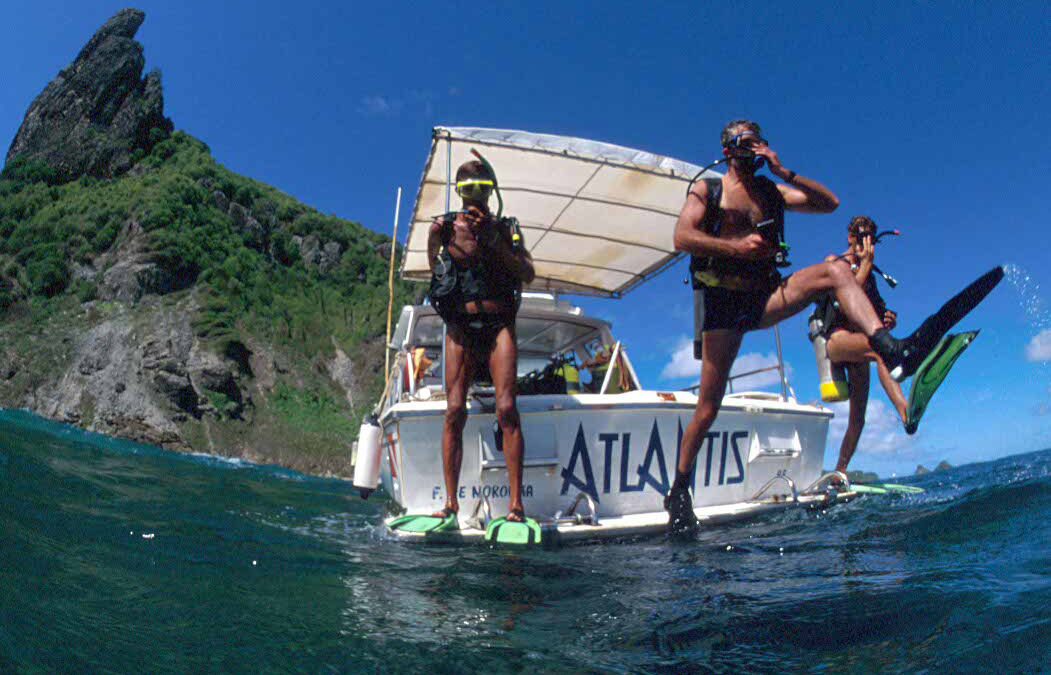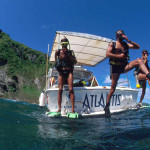To see a manta rays gliding effortlessly through the water is a majestic sight. A close encounter beneath the waves with one of these gentle gianth is awe inspiring.
Divers and snorkelers are increasingly seeking out the rare locations around the world where such an experience can be had. These destinations are reaping the benefits, and realising that these ocean wonderers are worth far more alive than dead.
A recent study by the New Economics Foundation (NEF) and the La Universidad de la Laguna, Tenerife found that divers who seek out “spectacular” marine species such as sharks and rays in the Canary Islands generate £14.5 million for the local economy, and support some 429 jobs.
Manta ray night dive operations generate more than US$ 2.5 million per year for the small community of Kona in Hawaii. This is a significant income for a community of only about 30,000 residents.
Meanwhile a study published in the scientific journal Tourism in Marine Environments estimates that manta tourism in the Maldives is worth a massive US$ 8.1 million per year in direct revenue.
In many countries manta rays remain an untapped resource. And too often this economic potential is being lost.
[intlink id=”78″ type=”post”]Manta ray gill rakers are used as ingredients in some Chinese medicines[/intlink], where they may fetch up to US$ 220 per kilo. The big profits are generated not in countries like Indonesia, where the mantas are harvested, but by the merchants in China. Even so, the value of mantas to the Chinese medicine industry is unlikely to rival the revenues generated by manta ray tourism, particularly when long-term benefits are considered.
As studies on the shark diving industry in South Africa and elsewhere have proven, living animals can be much more valuable to an economy than the short-term value of harvesting an animal. In countries like Indonesia, well managed manta ray tourism provides considerable economic opportunities amongst both domestic and foreign tourism markets.
Tell us your opinions in the comments below. Is there a place for manta ray harvesting and trade in today’s world? Is there social, economic and moral justification for a total ban? Or is there a middle ground? Tell us what you think below.



